The cover photo was taken from a tweet by Douglas Griffin.
A couple of weeks ago, I stumbled upon a very interesting Quora question titled: “Why has Russian chess faded so badly? They haven’t held the world title for over a dozen years and have only 3 players in the candidates tournament.”
I embarked on writing an answer to it, in which I disputed the very premise of this question, but also tried to offer an explanation why Russia hasn’t had a World Champion for more than a decade.
I was really happy with the final result and considering I am completely incapable of creating novel blog content these days, I’ve decided to replicate yet another Quora answer here, as well 🙂
So without further ado, here it comes copy-pasted 🙂
Hope you will enjoy it 🙂
Warning: Long read about chess history incoming. Read at your own risk!
I have actually made a meme tightly connected to this question quite some time ago – allow me to post it to get everyone’s attention before answering it:
In Soviet Russia, we didn’t have any Norwegian wunderkinds beating our boyz!
Now for real…
This is a great and interesting question, which is very difficult to answer because it is hard to pinpoint one exact reason why Russian/Soviet chessplayers don’t dominate the top of the chess world as they used to in the 2nd half of the 20th century.
Historical events such as the fall of the USSR and the major technological changes that brought to the availability of information (and increased speed of sharing) have had a dramatic impact on the chess world.
It is impossible to talk about Russian chess (or chess of any nation) without taking these social, cultural and technological factors into consideration. Which makes analysis rather complex and demanding.
Even so, I wouldn’t be me if I didn’t at least try. In the course of this answer, I will share some of my own insights and thoughts about how and why Russian/Soviet chess changed in the last 50 years.
I hope you will enjoy it as much as I enjoyed making that meme you can see above. 😛
First of all, I think the premise of the question is too harsh. I wouldn’t say that Russian chess has faded BADLY. According to the federation rankings on the FIDE website, Russia is the country with most Grandmasters, International Masters and Titled players (not to mention those who emigrated to other countries and are still playing).
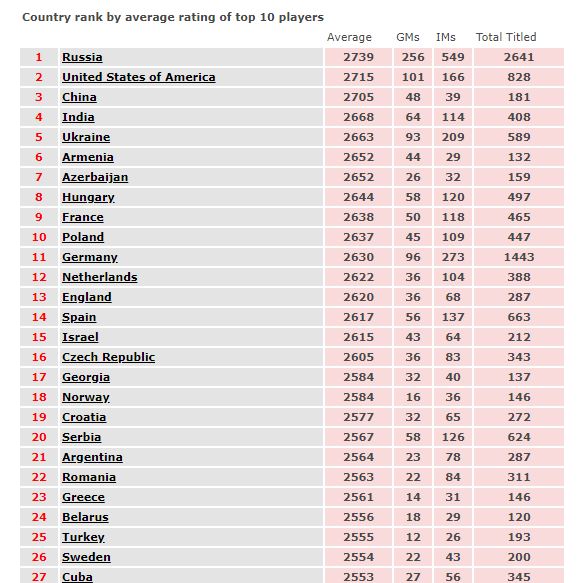
It is also ranked first by the average rating of the top 10 players.
Therefore, it can still be regarded as the leading chess country in the world.
Also, when you write Russia only has “3 players” in the Candidates tournament, I think you underestimate how tremendous achievement that is (even if one spot was awarded via wildcard).
The qualification process, the level of the opposition and the number of people playing chess have increased exponentially since the 50s and the 60s. 3 players who qualified for the Candidates are in a much higher percentile of best chess players than 3 players who qualified some 50 years ago.
Even if we compare the number of Russian players in 2020 (or 2018) Candidates tournament – 3 – with the number of Soviet players in Candidates tournaments in the past, the difference is not so huge. As an example, I have singled out three editions:
- Budapest 1950
7 Soviet players out of 10 participants (Bronstein, Boleslavsky, Smyslov, Keres, Kotov, Lilienthal, Flohr).1
Probably not the best argument in my favour, Besides, immediately after the Second World War the hegemony of Soviet players was at its peak.
Probably because Soviet Russia was the winner of the WWII and also the only country which had some sort of “chess scene” developed between the two wars (I read a saying somewhere that Soviet people played chess because they didn’t have anything else to do)
- Curacao 1962
5 Soviet players out of 8 participants (Petrosian, Geller, Keres, Korchnoi, Tal)2
- Candidates Cycle 1970–1972
Additionally, it has to be emphasized that there are major differences between the Soviet Union and the Russian Federation (quite shocking, I know). The majority of the “Soviet” players from the USSR era were not actually Russian players.
For example, in the Budapest Candidates 1950, out of 7 Soviet participants, only Smyslov and Kotov were born in Russia. As for the rest:
- David Bronstein (Ukraine)
- Isaac Boleslavsky (Ukraine)
- Paul Keres (Estonia)
- Andor Lillienthal (Hungary)
- Salo Flohr (CzechoSlovakia)
It was not particularly different in Curacao 1962 – out of 5 Soviet players, only Korchnoi was born in Russia. As for the rest:
Finally, the 1970-1972 Candidates matches are not different – once again Korchnoi was the only “pure Russian”, while Petrosian, Geller and Mark Taimainov (born in Kharkiv, Ukraine) were not.
Therefore, there is a major difference in the counting of the Candidates participants because we are basically comparing two different entities – USSR and Russian Federation.
If you applied the same principle to 2018 Candidates, you would get 5 “Soviet” players (Kramnik, Grischuk, Karjakin as pure Russians, Aronian as the Armenian and Mamedyarov as Azeri). 4
while in 2020 Candidates, the number would be 4 (Alekseenko, Nepomniachtchi, Grischuk as Russians and Radjabov as Azeri, if you want to count him). 5
So long story short, I think it is very debatable whether Russian chess has really declined so badly. However, everything I have written above doesn’t really answer (or explain) the final part of the question – how come we haven’t had a Russian World Chess Champion for more than a decade?
I think it is impossible to answer that question only with facts, so I have to resort to some speculation and qualitative analysis in order to try to explain it.
So first of all, in order to become a World Chess Champion, both hard work and talent are necessary. In my opinion, one of the main reasons why Soviet players were so successful in the past was precisely the “hard work” area.
As mentioned earlier, “chess” was sort of a national sport in the USSR (both before and especially after WWII). Clubs were organized, lectures were held, tournaments were played and the country had a developed chess culture.
More importantly, in an era where it was difficult to obtain information, chess knowledge was available. While other countries haven’t even heard of chess notation, Soviets were printing tournament bulletins’, chess magazines and chess books. It was possible to have a chess coach when the words “chess coach” didn’t even exist in the English language.
Naturally, when such a huge country gets infected by the chess virus and has a large pool of players, talents are bound to come out of the mass. (A similar effect can be observed in table tennis with China). And even if some champions lacked in “hard work” category (Tal, Spassky) or “talent” category (Botvinnik) they were still able to beat their contemporaries.
Put simply, Soviet Russia was much ahead of the rest of the chess world chess wise.
The only one who was able to break their hegemony was Fischer. Even though I often like to (semi-jokingly) bash him, but his legendary dedication, work-ethic and talent managed to surpass the efforts of an enormous collective (even though he was not without any support in later stages of his career, as well).
In a way, Fischer announced what will happen at the turn of the millennium.
Which leads me to the next point.
What changed in the 90s and especially in the 2000s? Well, due to the advance in technology, the world has changed significantly and the playing field has been leveled due to the following:
- Availability and accessibility of knowledge and information – it became easier than ever before to find good resources that help you study the game
- Online playing – in the past, it was very difficult to find an opponent of your own strength (or even someone to play against). Today, it is just a couple of clicks away.
- Online coaching – in the past, it was very difficult to find a competent chess coach (especially for non-USSR citizens). Today with Skype/Zoom and video conferencing, it is not a problem.
- Chess engines – Today every patzer is able to find the objective truth in a certain position. And even though there are dangers of getting too “hooked” on the engine, it has certainly accelerated the progress of players who use them as a proper tool.
- Chess tournaments – In order to improve, it is important to play regularly. Nowadays every “village” has its own Open and one does not need to make a round-trip around Russia to practice the art of playing.
Suddenly, it became possible for highly motivated and talented individuals to “overcame” the system (while being more balanced and less extreme than Fischer). Vishy Anand appeared in the 90s, Veselin Topalov can also arguable be put into this category, while the reigning World Champion – Magnus Carlsen – is probably the best example.
Of course, that is not to say that Russia doesn’t have a system any longer. Due to the heritage and long-standing tradition, they have managed to retain the world number one spot as a country in terms of factors mentioned earlier.
However, it seems to me that the system is only able to take you so far in the modern era where competition is tighter than ever. It seems to me that the system can produce average or even above—average chess players (I am talking 2700-2750 level), but that it is unable to provide that “factor X” required for the World Champion.
Since the world is so fast these days any prodigies keep pushing the boundaries and gaining the GM title at a very young age, I think many other things have to click – how they parents raise them, how they emotionally mature, how they seek and find balance out of chess (and of course, how talented they are), etc.
I think these factors are outside of the system’s reach and that it can only create a nice ground for an individual to prosper.
Not prosper the individual.
(A similar effect can be seen in India, which is able to produce a mass of strong GMs, but only a few of them able to get to the 2700-2750 levels)
To conclude, I’d say that Russian chess has by no means faded so badly, that having 3 Candidates out of 8 in a Candidates tournament is a tremendous achievement and that other factors rather than your nationality are more relevant in order to win the World Chess Championship title.
P.S. Phew, it was a long one. Let me know what you think in the comments – I would like to hear your thoughts on this interesting and complex topic.
- Source: World Chess Championship 1951
- Source: World Chess Championship 1963
- Source: World Chess Championship 1972
- Source: Candidates Tournament 2018
- Source: Candidates Tournament 2020

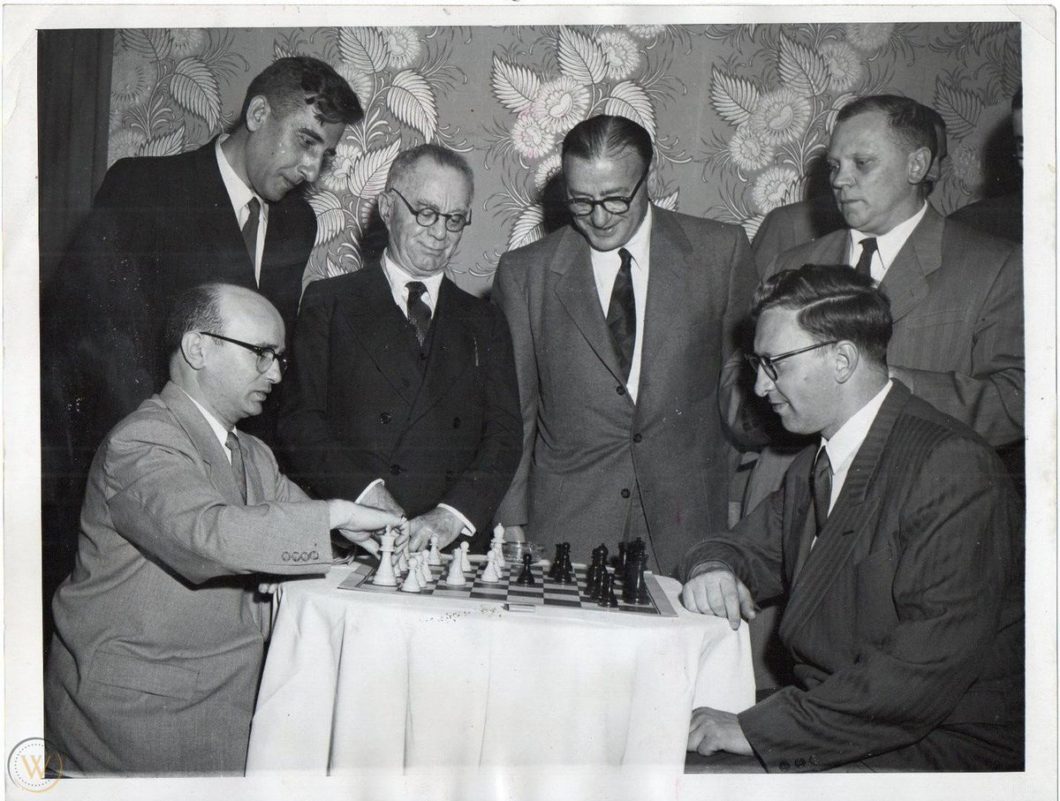
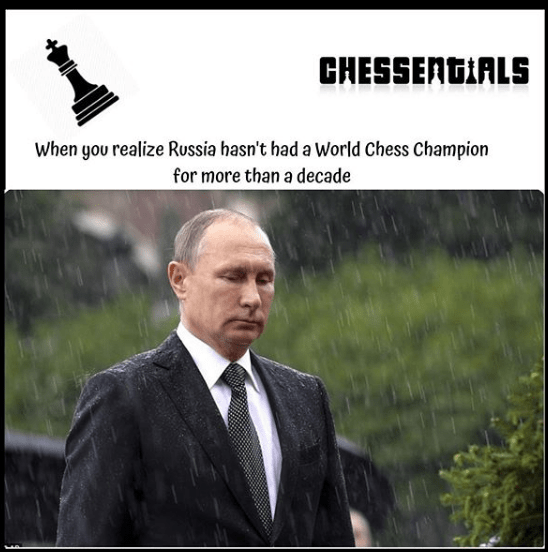
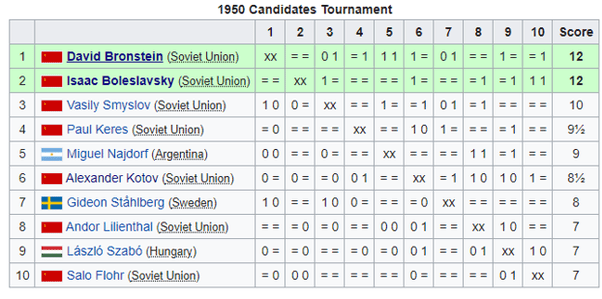
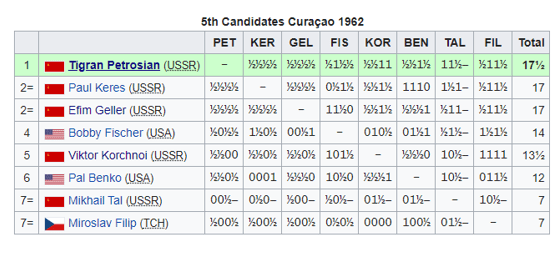
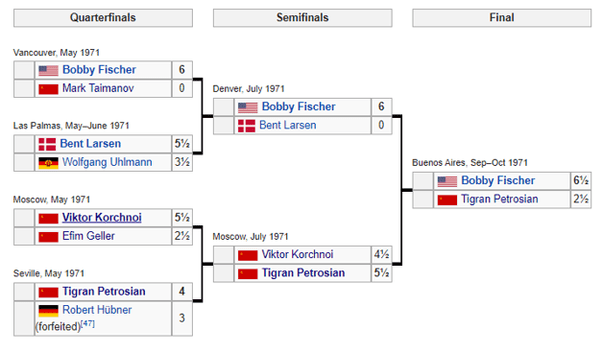
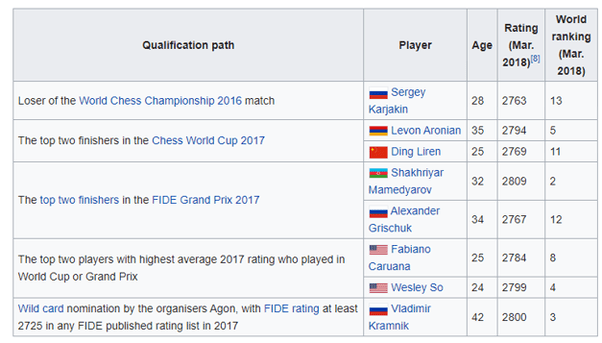
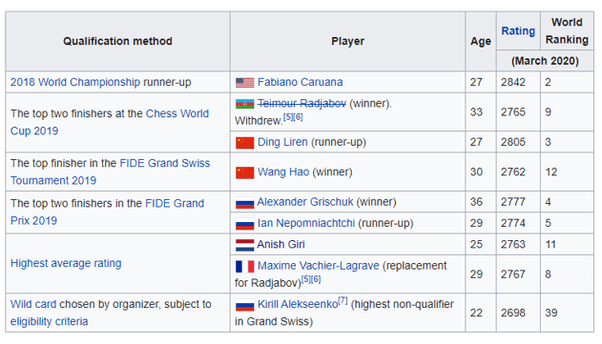
Interesting article. One thing that has to be taken into account though is that for a period of time during the Soviet era, FIDE had a rule limiting the number of participants from one country in the Candidates stage – the only country affected by this rule was the USSR. So for instance GM Stein had in reality qualified for Curacao 1962 but was excluded due to this rule (I believe the same thing applied after the Interzonal in 1964). So in reality, the dominance of Soviet players was even greater than you take into account in your comparison with present day Russian chess.
Yeah, that is correct! I kinda forgot to mention it! Fully on spot comment!